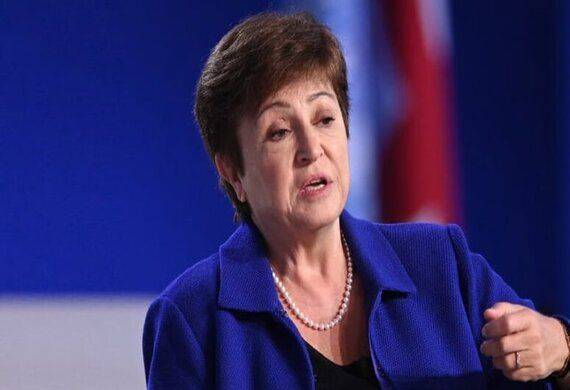IMF Chief: World Economy Better Than Feared but Falls Short
By Global Leaders Insights Team | Oct 09, 2025

According to the head of the IMF, the world economy is performing better than anticipated despite ongoing uncertainty and poor medium-term growth prospects. "Better than feared, but worse than we need," International Monetary Fund Managing Director Kristalina Georgieva told reporters in Washington about the state of the global economy.
Key Highlights
- IMF Chief Kristalina Georgieva stated that the global economy is performing better than expected, with global growth projected to slow slightly this year and in 2026.
- Despite resilience, Georgieva cautioned that uncertainty is the new normal, urging policymakers to prepare for potential future shocks.
According to her, the Fund now anticipates that global growth will slow "only slightly this year and next," supported by better-than-expected circumstances in the US and a few other developed, emerging market, and developing nations.
Georgieva's comments preceded the World Bank and IMF meeting of finance ministers and central bank governors in Washington next week.
Following US President Donald Trump's decision earlier this year to impose broad tariffs on numerous trading partners, trade is expected to once again take center stage at the annual meetings.
"Several shocks"
Georgieva stated that "all signs point to a world economy that has generally withstood acute strains from multiple shocks," citing "improved policy fundamentals," the private sector's flexibility, lower-than-expected tariffs, and favorable financial conditions.
"The world has avoided a tit-for-tat slide into trade war -- so far," she stated. While the US effective tariff rate of about 10 percent is still "far above" the rest of the world, she pointed out that the average US tariff rate has decreased from 23 percent in April to 17.5% today.
However, she cautioned that the full impact of those tariffs "is still to unfold," and that the global economy's resilience has not yet been "fully tested."
In light of this, the Fund continues to predict that global growth will stay below the 3.7 percent average prior to the Covid-19 pandemic, at about three percent over the medium term, consistent with earlier projections.
"Global growth patterns have been changing over the years, notably with China decelerating steadily while India develops into a key growth engine," Georgieva stated.
She urged nations to move quickly to "durably" increase output, restore fiscal buffers, and address "excessive" trade imbalances in order to improve the bleak growth prospects elsewhere.
The Fund's recommendations for policymakers varied by region; for example, Asia was urged to improve its access to financing, strengthen the service sector, and increase internal trade.
According to Georgieva, if done properly, this could eventually increase economic output by up to 1.8%.
"Business-friendly reforms" and the expansion of the Continental Free Trade Area should be promoted by African nations, she said, as this could increase their real GDP per capita by "over 10 percent." She stated, "Gains from this region can be especially large."
Also Read: Jensen Huang Shocked by AMD's Bold Move to Partner with OpenAI
A deep affection for Europe
In stark contrast to the United States, Europe has struggled with economic growth in recent years, and Georgieva saved her worst criticism for that continent.
Georgieva urged the European Union to designate a new "single market czar" to spearhead reforms in order to increase competition within the bloc. This would streamline the EU's organizational framework and consolidate the authority to implement the necessary changes.
Among these adjustments are measures to strengthen the EU single market's integration in the energy and financial services sectors.
"Catch up with the private sector dynamism of the US," she stated, adding that Europe needs to "recognize that there will be some sacrifices on the way."
Georgieva called on the Donald Trump administration to address the nation's federal deficit and implement measures to encourage household savings for the largest economy in the world.
Georgieva also restated the IMF's continued calls for fiscal reforms to increase private consumption and lessen reliance on industrial policy to propel growth in China, the second-largest economy in the world.
.jpg)



